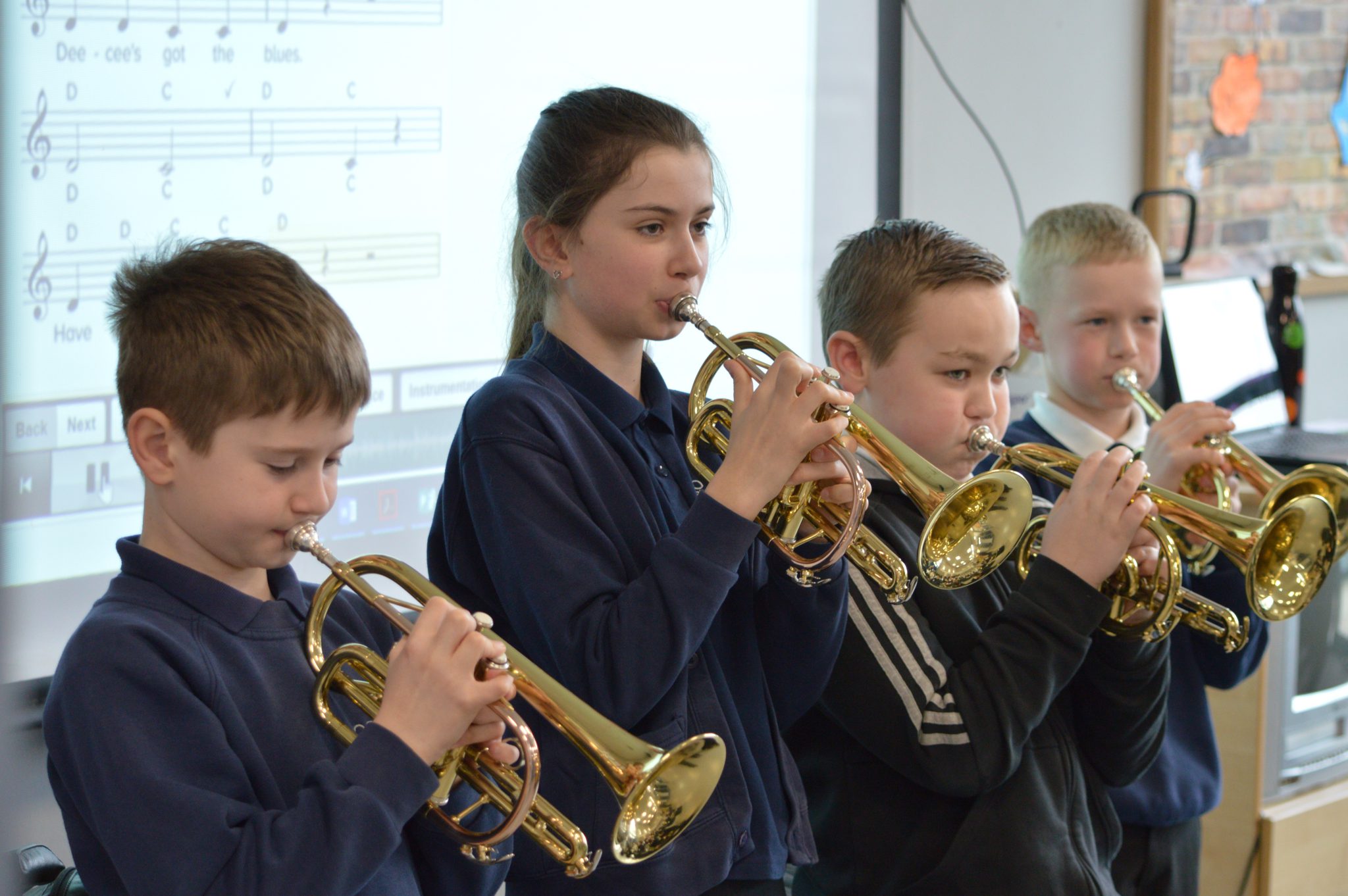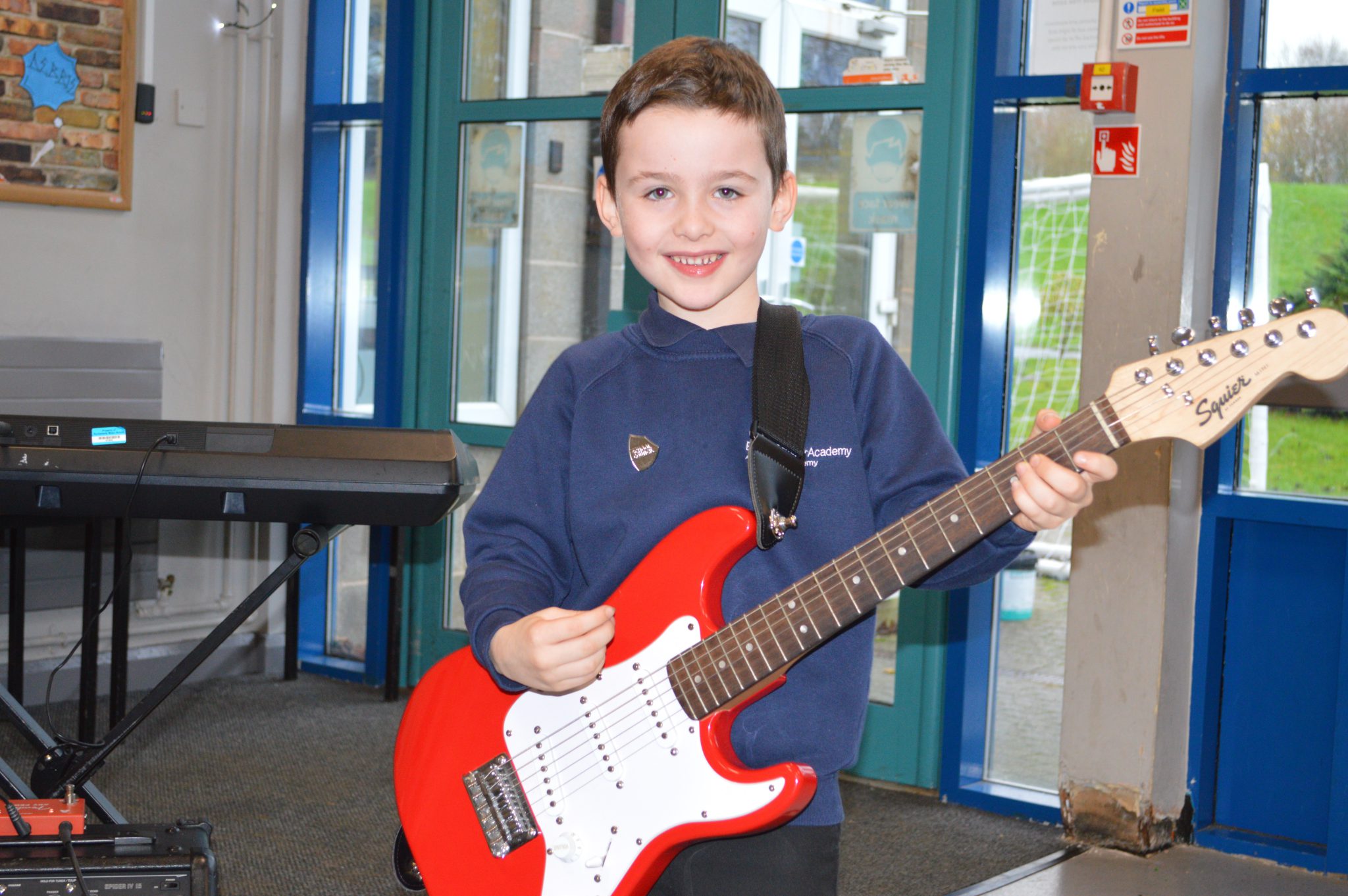Music is a universal language that embodies one of the highest forms of creativity. A high quality music education should engage and inspire pupils to develop a love of music and their talent as musicians, and so increase their self-confidence, creativity and sense of achievement. As pupils progress, they should develop a critical engagement with music, allowing them to compose, and to listen with discrimination to the best in the musical canon. At Birley Primary Academy, we are committed to children developing a life-long appreciation of all genres of music and experience the positive effect music can have underpinned by professional live musical experiences to engage and inspire.

The National Curriculum for Music aims to ensure that all pupils:
Details about how Birley Primary Academy deliver our Music Curriculum can be found in the information below:
Our music programme encourages children to enjoy music as listener, creator or performer. Children will develop the skills to evaluate music they hear, as well as express opinions using musical vocabulary. They will gain an understanding of how music is created and communicated, and in turn be able to create and communicate their own music. Through music we want the children to develop self-confidence, the ability to interact with and be aware of others and gain a sense of achievement through their musical endeavours. Our varied musical programme allows the children to learn to self-evaluate; discovering areas of strength as well as areas to develop. Music at Ford gives the children the opportunity to discover talents, interests and passions on which to build in their futures.
At Birley Primary Academy, our music curriculum is planned to demonstrate progression and build on and embed current skills. We focus on progression of knowledge and skills in the different musical components and teaching of vocabulary also forms part of the units of work. If children are achieving the knowledge and skills in lessons, then they are deemed to be making good or better progress.
Our music curriculum is high quality, thoroughly planned and delivered to establish progression. We review the impact and progression of our curriculum through the following methods:
We endeavour to ensure that the sequence of content enables our children to progress whilst they are with us whilst also providing our pupils with the necessary foundations to build upon as they progress into secondary education and beyond.
Through our Music curriculum, we aim to promote British values by making cultural links between musical elements in topic work, and by exposing children to a broad range of music from our country’s rich and varied cultural tapestry.
Further to this, our Music curriculum is also driven by SMSC development and this can be exemplified in the following ways;

Our Music Development Plan embodies our commitment to music at Birley Primary Academy. This is both within our curriculum and also that of personal musical development, ensuring equity of access and opportunity for all pupils to develop interests, talents and enjoyment. We have music offers to all pupils on top of their music curriculum.
At Birley Primary Academy, we aim to promote the confidence, resilience and self-worth of all our children. We think that promoting enjoyment and fun in participating in a variety of musical experiences will increase all of these. We feel it it important that children gain a firm understanding of what music is through listening, singing, playing, evaluating, analysing and composing across a wide variety of historical periods, styles, traditions and musical genres.
We celebrate music interests in and out of school, encouraging to develop further through music clubs and peripatetic teachers and share this engagement in assemblies.